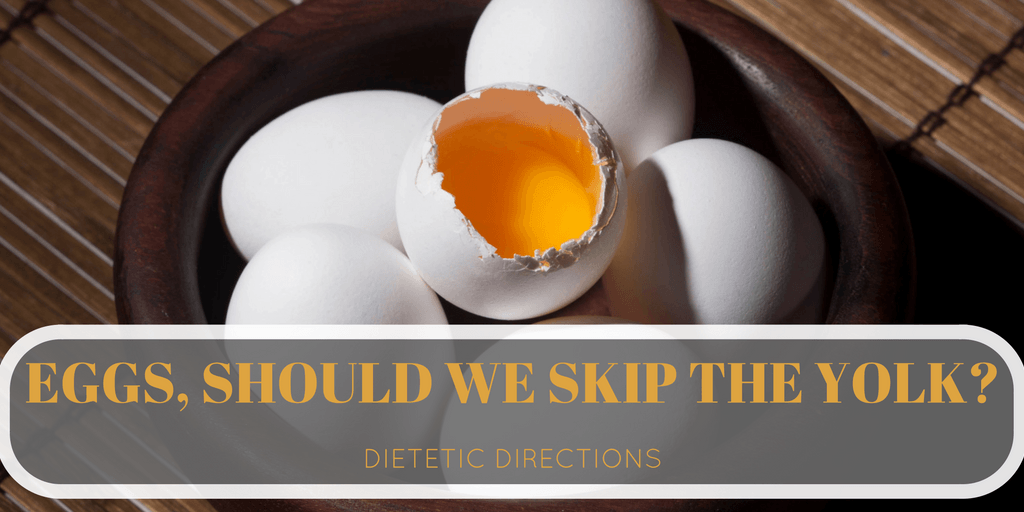
Eggs, Should we Skip the Yolk?
In effort to cut down on total calories and total fat, it is not uncommon for ‘health-conscious’ consumers to forgo their yellow yolks and instead opt for merely the egg whites. Have you ever wondered if this is actually an advantageous practice for cholesterol lowering? Today, I will explore the ‘whole egg truth’.
First Let’s Compare:
| Egg (large) | Calories (kcal) | Protein (grams) | Saturated ‘BAD’ Fat (grams) | Cholesterol (mg) | Vitamins, Minerals |
|---|---|---|---|---|---|
| Whole Egg | 74 | 6 | 1.7 | 186 | folate, choline, vitamin A, riboflavin, iron, calcium, phosphorus, potassium and healthy fatty acids |
| Egg Yolk ONLY | 58 | 3 | 1.7 | 186 | folate, choline, vitamin A, riboflavin, iron, calcium, phosphorus, potassium and healthy fatty acids |
| Egg Whites | 16 | 3 | 0 | 0 | Trace amounts |
It is true that skipping the egg yolk will decrease total calorie and fat intake….BUT… you will be missing out on key nutrients such as choline. Choline is a nutrient essential for brain development. Pregnant and breastfeeding mothers need choline in their diets to support the infant’s brain development.
If you skip the egg yolk you'll be missing out on key nutrients! Share on XThe Cholesterol Story
The story that eggs will increase your blood cholesterol originated from research dating back to the 1970s which concluded that foods high in cholesterol (like eggs) will increase your blood cholesterol. However, when examining this early research, it became apparent that the foods examined were not only high in cholesterol but also high in saturated fat (butter, high fat creams, fatty meats) as well as trans fats (man-made, partially hydrogenated oils).
Therefore, newer research has concluded that the saturated and trans fats are actually the main culprits for increasing blood cholesterol. Interestingly, emerging research is now examining how much of the cholesterol in eggs is actually absorbed by our bodies and it appears to be lower than suspected. So stay tuned…
DID YOU KNOW?
- Brown and white are eggs are no different it terms of nutrition
- 1 serving from the Meat and Alternatives group in Canada’s Food Guide is 2 eggs
- Eggs provide all your ‘essential amino acids’ = complete protein
- All the egg’s vitamins are in the yolk (vitamin A, vitamin E, vitamin D)
- Eggs are one of few foods that contain vitamin D (25 IU vitamin D)
- Eggs at the grocery store are not fertilized (so will not hatch)
Bottom Line Recommendations:
Whole eggs can still be part of a heart healthy diet. Hooray! Those without high cholesterol, diabetes or a history of heart disease can eat an average of one egg a day without increasing blood cholesterol or risk of cardiovascular disease. However, the Canadian Diabetes Association suggests that if you have high cholesterol or cardiovascular disease limit whole eggs to two or less per week. Keep in mind the preparation of eggs will add differing amounts of fat in the cooking process.
Hope this helps to ‘unscramble’ the whole egg truth.




